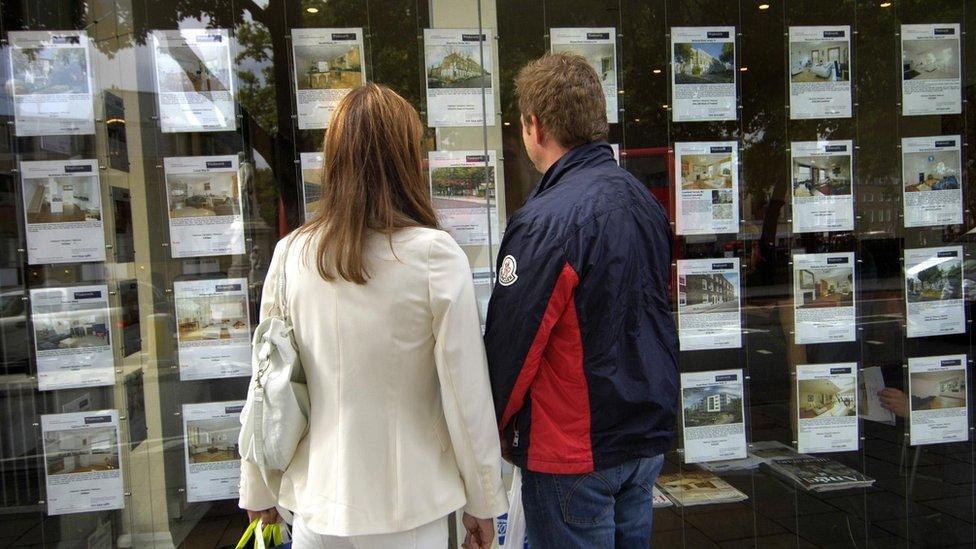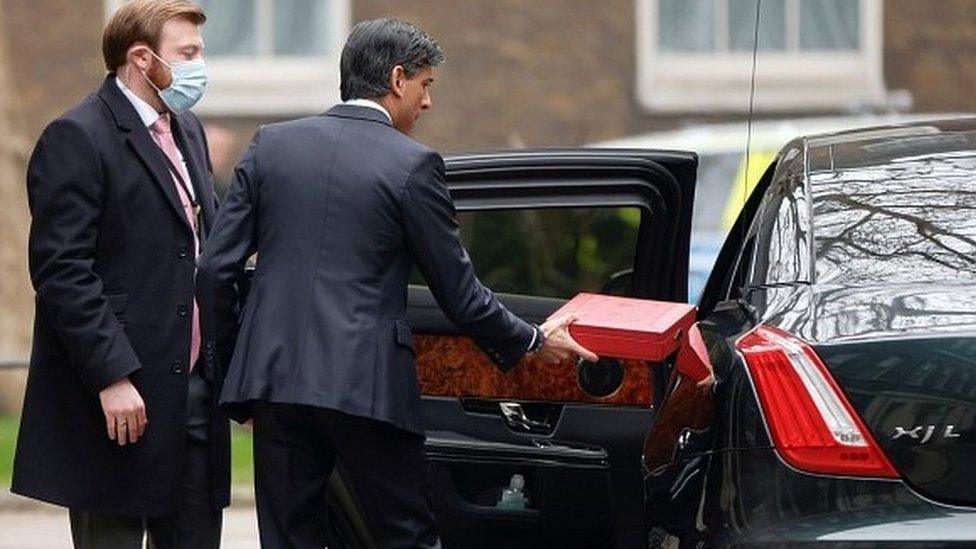Stamp duty holiday extended to end of June
- Published

The stamp duty holiday on house purchases has been extended for a further three months, Chancellor Rishi Sunak announced in his Budget.
The property purchase tax has been suspended on the first £500,000 of all sales in England and Northern Ireland since July.
The tax break for will now continue until the end of June.
After that the nil rate band will be set at £250,000 - double its standard level - until the end of September.
Rishi Sunak told MPs the extra move was "to smooth the transition back to normal - and we will only return to the usual level of £125,000 from October 1".
The stamp duty holiday was introduced to help buyers who might have taken a financial hit because of Covid. It was also intended to boost a property market hit by lockdown.
During the stamp duty holiday there has also been some relief from the equivalent taxes for property buyers in Scotland and Wales - which is set to end on 31 March.
Relief for buyers
The extension of the stamp duty holiday will provide relief for people buying and selling homes, according to property group Knight Frank.
"The extension is fair because completion dates for buyers and sellers have been jeopardised through no fault of their own," said Tom Bill, head of UK residential research at Knight Frank.
He said the three-month taper until October will make any cliff-edge in June feel less steep.
The extension will come as "a significant relief to people who were stuck in the middle of the buying and selling process, watching time tick down towards the deadline," said Sarah Coles, personal finance analyst at Hargreaves Lansdown.
But it is also likely to give another kick-start to the property market, she said. "There's a good chance it will boost enthusiasm for buying and selling again, particularly as we head into the key spring months."
Rachel Springall, finance expert at Moneyfacts.co.uk said the extension gives borrowers a better chance of making the deadline "and could retain borrowers who were going to pull out of the house purchase process".
Laith Khalaf, financial analyst at AJ Bell agreed that there is some justification for a temporary extension but pointed out the move comes at a cost. "It's not a cheap measure, estimated to cost the taxpayer around £1.6bn."
What is stamp duty?
Stamp Duty Land Tax is a tax paid on the purchase of property or land in England and Northern Ireland.
Last summer, the government temporarily increased the amount at which the tax is paid to £500,000, for property sales.
The tax break was due to end on 31 March, but it will now end on 30 June.
After this date, the starting rate of stamp duty will be £250,000 until the end of September. Stamp duty will then return to the usual threshold, and will be paid on property sold for more than £125,000.
The extension means anyone completing a purchase on a main residence costing up to £500,000 before 30 June will not pay any stamp duty. More expensive properties would only be taxed on their value above that amount.


- Published4 March 2021

- Published3 March 2021
